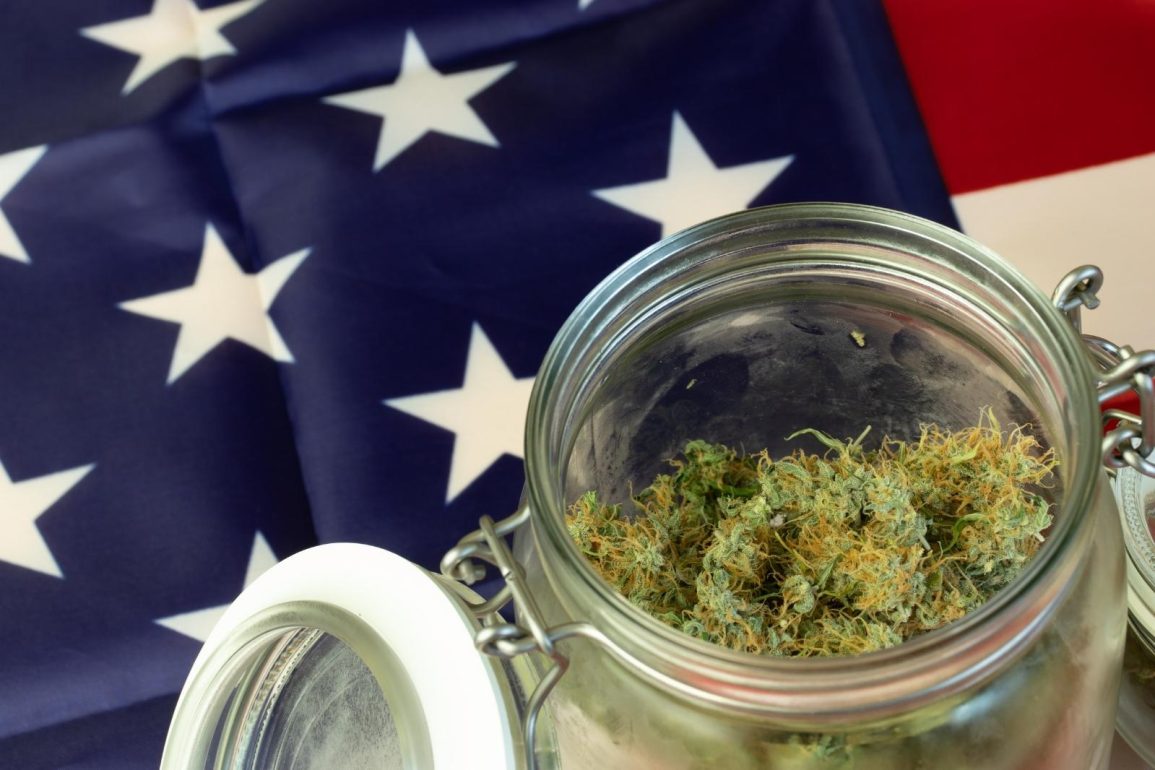THCa flower refers to cannabis flower that contains a high concentration of tetrahydrocannabinolic acid (THCa). THCa is the non-psychoactive precursor to delta-9-tetrahydrocannabinol (THC), which becomes THC when exposed to heat through a process known as decarboxylation. Find more about Is THCA Flower Legal.
Table of Contents:
- Key Takeaways:
- How is THCA Flower Legal?
- Is THCA Flower Illegal?
- Can You Legally Grow THCA Flower?
- Is there a legal difference between THCA Flower and Delta 9 THC Flower?
- Is THCA Flower Legal to Smoke?
- What are the Potential side effects of THCA Flower?
- What are the Benefits of THCA Flower?
- THCA Flower Consumption Methods
- How to Buy THCA Flower Safely?
- THCA Flower FAQs
Key Takeaways:
- THCA (Tetrahydrocannabinolic Acid) flower, derived from the cannabis plant, is legal in some jurisdictions due to its unique chemical composition.
- Its legality often depends on the presence of delta-9 THC, which is the psychoactive compound in cannabis.
- THCA flower is distinct from delta-9 THC flower, and this difference can impact its legal status.
- Legalization and regulations regarding THCA flowers can vary by country and state.
The world of cannabis and its legality is constantly evolving, with new products and compounds emerging all the time. One such product that has sparked interest among cannabis enthusiasts and researchers alike is the THCA flower. But is THCA flower legal? In this blog, we will explore the legal status of THCA flower, its differences from delta-9 THC flower, potential side effects, and its potential benefits.
What is THCA Flower?
THCA, or Tetrahydrocannabinolic Acid, is a naturally occurring compound found in the cannabis plant. It is a precursor to delta-9 THC, the compound responsible for the euphoric “high” associated with cannabis use. THCA itself is non-intoxicating, meaning it doesn’t produce the typical psychoactive effects of delta-9 THC.
THCA flower is made from cannabis plants that have not undergone the decarboxylation process, which is necessary to convert THCA into delta-9 THC. This means that when you consume THCA flower, you’re not getting “high” in the same way you would with delta-9 THC.
How is THCA Flower Legal?
The legal status of THCA flower hinges on its chemical composition. In many places, including the United States, the legality of cannabis and its derivatives is primarily determined by the concentration of delta-9 THC. Hemp, a variety of cannabis, is legal in many jurisdictions if it contains less than 0.3% delta-9 THC by dry weight. As THCA is not delta-9 THC, products derived from hemp with high THCA content may be legal.
For example, the 2018 Farm Bill in the United States legalized hemp and its derivatives with a delta-9 THC concentration below 0.3%. As THCA is not delta-9 THC, THCA-rich products made from compliant hemp plants could be considered legal under federal law.
Is THCA Flower Illegal?
While THCA flower may be legal in some places, it’s important to note that its legality can vary significantly by country, state, or jurisdiction. Some regions may classify THCA-rich products as illegal or controlled substances, especially if they have a high delta-9 THC content.
To avoid legal issues, it’s essential to research and understand the specific laws and regulations governing THCA flower in your area.
Can You Legally Grow THCA Flower?
The legality of growing THCA-rich cannabis plants also varies by location. In places where cannabis cultivation is permitted for medical or recreational use, you may be allowed to grow THCA-rich strains, provided they comply with local regulations, including delta-9 THC concentration limits.
Always check your local laws and obtain the necessary permits or licenses if you plan to cultivate THCA-rich cannabis plants.
Is there a legal difference between THCA Flower and Delta 9 THC Flower?
Yes, there is a legal distinction between THCA flower and delta-9 THC flower. Delta-9 THC is the primary psychoactive compound in cannabis and is subject to strict regulations in many places. In contrast, THCA is non-intoxicating and is often treated differently under the law.
It’s important to understand that while THCA itself may be legal in some instances, products that contain high levels of delta-9 THC are typically subject to stricter controls and may be illegal in many jurisdictions.
Is THCA Flower Legal to Smoke?
The legality of smoking THCA flowers depends on local regulations. In places where THCA flower is legal, smoking it may be permitted for personal use. However, always check your local laws and follow any restrictions or guidelines regarding cannabis consumption.
c
As with any cannabis product, THCA flower can have potential side effects. It’s essential to be aware of these effects before using THCA-rich products:
1. Dry Mouth:
Commonly known as “cottonmouth,” this side effect can make your mouth feel parched. Staying hydrated can help alleviate this discomfort.
2. Dry Eyes:
THCA may cause dry, irritated eyes. Eye drops or artificial tears can provide relief.
3. Dizziness:
Some individuals may experience dizziness or lightheadedness when using THCA-rich products.
4. Lightheadedness:
Feeling lightheaded or having a sensation of floating can occur, especially if you consume THCA flower in high doses.
5. Increased Heart Rate:
THCA may lead to a temporary increase in heart rate, which can be concerning for individuals with heart conditions.
6. Temporary Cognitive Impairment:
THCA can impair cognitive function temporarily, affecting memory and concentration.
7. Heightened Sensory Perception:
Some users may experience heightened sensory perception, which can be enjoyable or overwhelming depending on the individual.
8. Paranoia or Anxiety:
THCA may exacerbate anxiety or paranoia in some users, especially if consumed in high amounts.
It’s crucial to start with a low dose when trying THCA flower and monitor your body’s reaction to minimize potential side effects.
What are the Benefits of THCA Flower?
THCA flower is of interest to researchers due to its potential therapeutic benefits. While more studies are needed, some reported benefits of THCA include:
1. Pain Management:
THCA may have analgesic properties and help alleviate pain, making it potentially valuable for individuals with chronic pain conditions.
2. Anti-Inflammatory Effects:
THCA may possess anti-inflammatory properties, which could be beneficial for conditions involving inflammation.
3. Neurological Health:
Research suggests that THCA may have neuroprotective properties, potentially benefiting individuals with neurological disorders like Parkinson’s disease or multiple sclerosis.
4. Anti-Nausea Properties:
THCA may help reduce nausea and vomiting, making it useful for cancer patients undergoing chemotherapy.
5. Mood and Stress Regulation:
Some users report improvements in mood and stress levels after consuming THCA-rich products.
6. Appetite Stimulation:
THCA may stimulate appetite, which can be beneficial for individuals with eating disorders or those undergoing medical treatments that suppress appetite.
7. Muscle Spasms and Movement Disorders:
THCA may help alleviate muscle spasms and movement disorders, providing relief for conditions like epilepsy.
8. Sleep Enhancement:
Some individuals find that THCA helps improve sleep quality, making it potentially useful for those with sleep disorders.
THCA Flower Consumption Methods
When it comes to using THCA flower, there are several consumption methods to choose from. Each method has its advantages, and the choice often depends on individual preferences and needs.
1. Vaporization
Vaporization involves heating the THCA flower at a temperature below combustion, allowing you to inhale the vapor without the harmful byproducts associated with smoking. Vaporizers come in various forms, including portable devices and desktop models. This method provides rapid onset and precise dosage control.
2. Smoking
Smoking THCA flower is one of the most traditional methods of consumption. It involves combusting the flower and inhaling the smoke. While this method provides quick effects, it can also introduce harmful toxins into your lungs.
3. Dabbing
Dabbing involves vaporizing concentrated THCA extracts, not the flower itself. This method is popular among experienced cannabis users and offers potent and rapid effects. However, it requires specialized equipment like a dab rig.
4. Edibles
THCA flower can be infused into various edible products, such as gummies, brownies, or tinctures. Edibles take longer to produce effects but tend to last longer. Be cautious with dosing, as it can be challenging to predict the onset and intensity.
5. Sublingual Consumption
Sublingual administration involves placing THCA tinctures or oil drops under your tongue, where they are absorbed directly into the bloodstream. This method offers quicker effects than edibles and allows for precise dosing.
6. Topical Applications
THCA-infused creams, lotions, or balms can be applied directly to the skin. These products are primarily used for localized relief from pain, inflammation, or skin conditions and do not produce psychoactive effects.
7. Tea or Infusions
THCA flower can be infused into hot water to create a soothing and potentially therapeutic tea. This method offers a mild and gradual onset of effects, making it suitable for those who prefer a subtler experience.
How to Buy THCA Flower Safely?
Purchasing THCA flower safely involves considering various factors to ensure product quality, legality, and your own well-being. Here are some essential tips:
1. Research the Laws in Your Area:
Start by understanding the legal status of THCA flower in your region. Laws can vary significantly from one place to another, so ensure you are compliant with local regulations.
2. Choose Reputable Retailers:
When buying THCA flower, select reputable dispensaries or online stores with a track record of quality products and positive customer reviews. Check if they have the necessary licenses and follow safety and quality standards.
3. Examine Lab Testing:
Look for THCA flower products that have undergone third-party lab testing. This ensures that the product’s cannabinoid content, purity, and safety have been verified by independent experts. Lab reports should be readily available to customers.
4. Check for Certification:
Some regions may have specific certifications for cannabis products, such as organic or pesticide-free. Check for these certifications if they are important to you.
5. Verify the Source:
Understanding the source of the THCA flower is crucial. Hemp-derived THCA flower should contain less than 0.3% delta-9 THC, making it legal in many areas. Cannabis-derived THCA flower may have varying legality depending on your location.
6. Consider Your Needs:
Different strains of THCA flower may have varying cannabinoid profiles, resulting in unique effects. Consider your specific needs, whether it’s pain relief, relaxation, or other therapeutic benefits, when choosing a strain.
7. Start with a Small Quantity:
If you’re new to THCA flowers, start with a small quantity to gauge your tolerance and sensitivity. You can always adjust your dosage based on your experience.
THCA flower presents an intriguing option for those seeking potential therapeutic benefits from cannabis without the psychoactive effects commonly associated with delta-9 THC. With various consumption methods to choose from, you can tailor your experience to suit your preferences and needs.
However, it’s essential to prioritize safety when purchasing THCA flowers. Always research the legal status in your area, choose reputable retailers, verify lab testing, and consider your specific requirements. By following these guidelines, you can enjoy the potential benefits of THCA flower while minimizing risks.
THCA Flower FAQs
Can I Buy THCA Flower Online?
Yes, you can often purchase THCA flowers online from reputable dispensaries or stores that operate within legal jurisdictions. Ensure that the product complies with local laws and regulations.
Is THCA Flower Legal to Purchase and Consume?
The legality of THCA flowers varies by region. In many places, THCA flower derived from compliant hemp (with less than 0.3% delta-9 THC) is legal. However, cannabis-derived THCA flowers may have different legal restrictions. Always check your local laws to ensure compliance.
Does THCA Flower Lead to Psychoactive Effects?
No, THCA itself does not produce psychoactive effects. It is non-intoxicating. However, the conversion of THCA to delta-9 THC through decarboxylation (e.g., heating) can produce psychoactive effects.
Does THCA Flower Show Up on Drug Tests?
THCA itself typically does not appear on standard drug tests. However, depending on the product’s composition and the sensitivity of the test, it may contain trace amounts of delta-9 THC, which could result in a positive test. If you are subject to drug testing, it’s essential to be aware of the THC content in the product you use.

